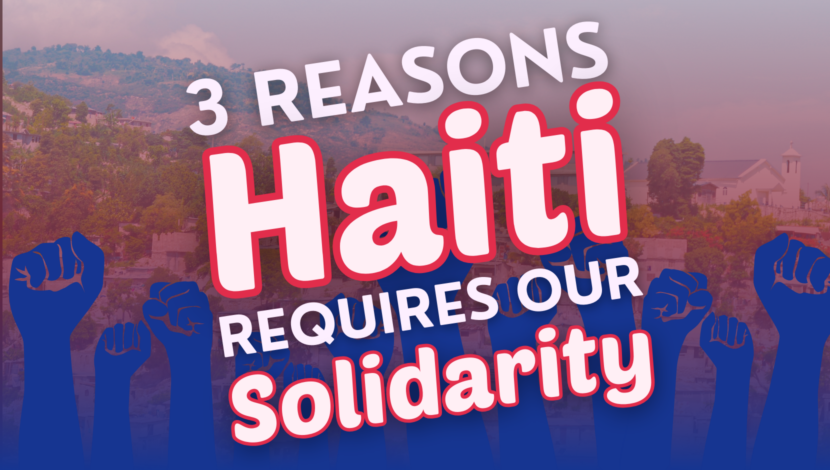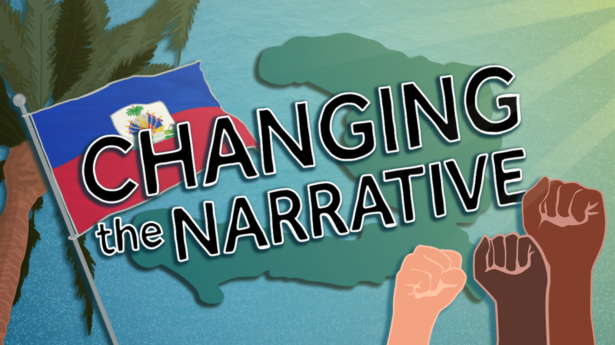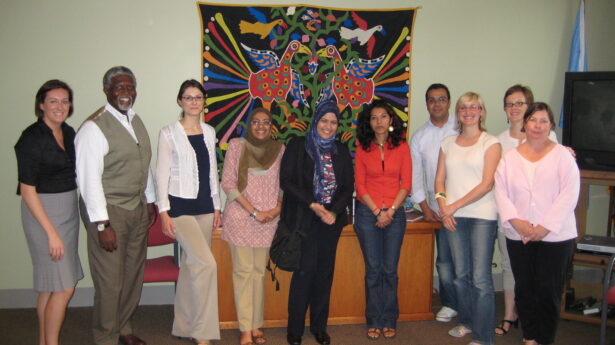The Unitarian Universalist Service Committee advances human rights through grassroots collaborations.
3 Reasons Haiti Requires Our Solidarity

By Shay A. Stewart-Willis on December 4, 2024
Freedom, by its very nature, is interdependent. Free societies require healthy social, economic, and environmental conditions. These conditions are not individually achieved one by one, but instead grown simultaneously. Strides in one area buoy another. Shortfalls send shockwaves throughout the system.
Haiti faces a series of conditions that have given rise to an era of unprecedented violence and instability. The seeds of their subjugation were planted as far back as French colonization, which brought enslaved people to the island and later sought to bankrupt Haiti’s government. US-led coups and military occupation followed. The United States profits from and sows seeds of violence in Haiti to this day as U.S.-made weapons enable ongoing cruelty.
Even as Haiti endures terror, Haitian people remain resilient. We can support their work as they secure the self-determined future they deserve. Here are three areas of struggle that require our solidarity:
- Civil Unrest
Ariel Henry, Haiti’s most recent Prime Minister, came to power through the intervention of the United States and other wealthy countries. Throughout his increasingly authoritarian reign, Henry oversaw the breakdown of Haitian society and the rise of violence that plagues the country today. Following his resignation in April 2024, Haiti has seen its government overrun by organized crime rings operating as paramilitary groups. Their fight for dominance has led to a total breakdown of state infrastructure and a stark increase in violent crime. In 2023, there were 4,789 homicides reported in Haiti, a rise of 119% year over year.
- Climate Crisis Resource Insecurity
The Global Climate Risk Index ranks Haiti as the country most vulnerable to the immediate impacts of the climate crisis. Haiti’s economy depends on the health of its agricultural sector. Erosion, flooding, and droughts have disrupted the food supply, increasing costs. Resource scarcity leads to food insecurity and amplifies violence.
- Gendered Violence
The patriarchal nature of power in Haiti stems from colonial rule. Paramilitary groups enact gendered violence, namely rape, as a means of establishing dominance. Women are often at the forefront of advocacy and community mobilization. As a result, they are the target of sexual violence intended to intimidate, terrorize, and control Haitian communities. In 2024, nearly 4,000 women and girls reported sexual violence between January and October. Cases involving children have increased 1000%.
There is no one better to lead the fight for a safer future than Haitian activists themselves. Haiti’s organizers continue to make strides toward self-determination. The resilience and innovation of the Haitian people demonstrate what’s possible in the country’s future.
Be a part of building a better tomorrow by learning how to act in solidarity with Haitian activists. On December 10 at 3 pm EST, join UUSC’s Human Rights Day Teach-In on Zoom. A panel of Haitian advocates will speak on the current situation in Haiti, its historical roots, its connections to U.S. policy, and measures we can take to support grassroots movements.
Image credit: Shutterstock (arindambanerjee)

